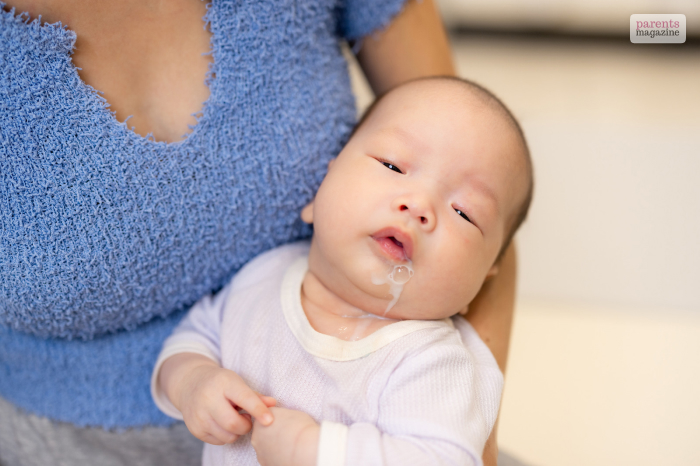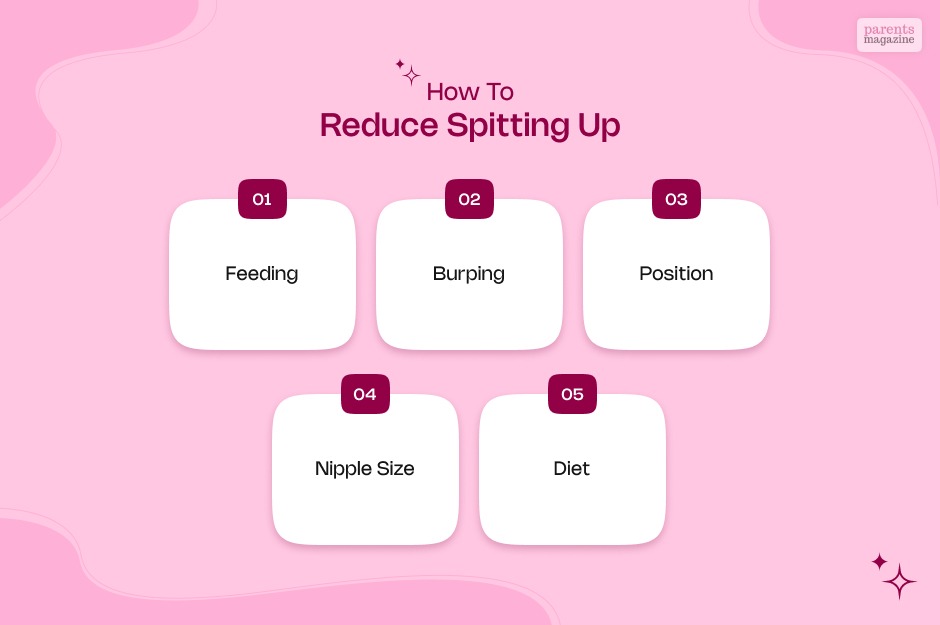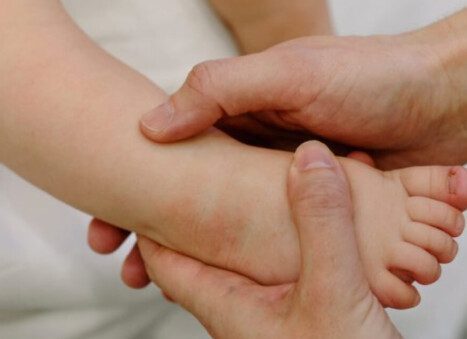
Why Is My Baby Spitting Up Clear Liquid?
Why is my baby spitting up clear liquid? It’s pretty common to feel concerned when your baby is spitting up clear liquid.
Becoming a parent entails lots of things you never imagined. This is just one of them.
Now that you have signed up for parenthood and your baby is spitting up clear liquid instead of curdled breast milk or formula, you are bound to worry. But, no more of that. We are here to give you all the answers and help you deal with it.
Your baby spitting up clear liquid is completely normal, and it will go away with time as your baby grows.
Why Is My Baby Spitting Up Clear Liquid?

Babies are known to throw up clear liquid. But why it happens has riddled the minds of parents for generations. Technically, many things are involved- saliva, spit-up from formula or breast milk, mucus, or a combination of it all. Let’s get right into it:
Spit-up

Babies that are younger than a year usually spit up the most. In most cases, spit-up is a part of their growing digestive system.
Babies sometimes warn of an oncoming spit-up by burping. So stay alert and be ready with a burp cloth in hand to help your baby when needed.
Sometimes after burping, you will see a lot of spit-ups or white, milky drool. This drool can sometimes be clear, and other times, it’s partially digested breast milk or formula mixed with saliva. You may see your baby spitting up clear liquid with white chunks too.
But clear or white spit-ups and drool after feeding sessions are normal.
Vomit

Your baby is learning. They are even learning how to swallow food slowly, not eating more than what their tummy can hold, and also how to digest food.
There is every chance of your baby vomiting in the first few months because they are learning everything all at once.
- Vomit happens when the muscles around the stomach contract to push out the contents by force.
- The vomit may have some clear stomach enzymes mixed in it. It could also look like small lumps of cottage cheese or curdled milk.
If the vomiting is not happening frequently or is not accompanied by fever, it is most possibly a part of your baby’s learning process. And you will get used to it as a part of your parenting journey as well.
Teething

Your baby will most likely get their first teeth when they reach around 4 to 7 months. It does call for celebration, but it could be painful for your baby.
Teething may cause pain and discomfort in some babies. Drooling with a lot of saliva is a baby’s way of coping with it. They could spit up some of that excess drool.
You can help your baby feel easy by rubbing the gums with your finger or offering them a cooling gum to bite on. You can also tie a bib to catch any of the excess salivae that may drip from their chin.
But there is not much that you do about excess drool, which makes your baby spit up. Just know that it is a temporary phase.
But if the spit turns into vomit, it may not be just teething. You should look into the matter more closely and consult your pediatrician.
Illness

Babies, with their developing immune systems, are more susceptible to getting sick. Upto 6 months of age, the baby lives on the immune system it got from you. But as it starts to fade, your baby will have to build their own immunity system.
Developing an immune system means they will start to get cold more often. They do not know how to blow their own nose or cough up excess mucus, so they will swallow it all down, which could cause them to spit up. This mucus can be a clear or cloudy liquid.
If your baby is vomiting along with diarrhea and fever, at some point, the vomit becomes clear. This is when the stomach is completely empty, and your baby is throwing up clear stomach enzymes.
Talk to your medical provider if they show symptoms of being affected by something else. A fever of 100.4°F (38°C) or higher in a baby under 2-3 months should warrant an appointment. You should also contact your doctor if they are between 3-6 months and have a fever of 101°F (38.3°C) or higher.
If your baby’s fever remains for more than 5 days, no matter the age, you should visit the doctor.
Reflux

A doctor will likely call it gastroesophageal reflux (GER). This happens when the baby regurgitates food from their stomach and spits it up. ⅔ of babies have reflux that causes frequent spit-ups in a day.
If your baby is okay and gains weight as it should, GER should not be a concern. As an issue, it peaks at 4 months of age, and when they reach their first year, it goes away like a bad memory under normal circumstances.
In very rare cases, your baby may develop GERD. The D makes all the difference, where your baby could refuse to eat, vomit, not gain weight and cry to express discomfort. You may be advised to feed your baby smaller meals with more frequency. Cutting out dairy if you breastfeed your baby is also on the table.
Pyloric Stenosis

Another rare condition is when the pyloric sphincter muscle sits at the outlet of the stomach affecting under 1% of babies in the US (more so in boy babies than girls).
Babies with this issue have a pyloric sphincter muscle that is narrowed and thickened. The narrowed channels restrict food in the stomach from entering the small intestine.
The stomach reacts by contracting the muscles to propel the food out, and it happens with a lot of force. Sometimes the vomit can reach several feet away. It could be clear fluid or curdled milk.
This could show up as a symptom when your baby is 2-3 weeks old. It also starts as late as 6 weeks old.
How to Reduce Spitting Up

The above are the most common reasons why your baby might be spitting up. But are there any ways to prevent your little one from spitting up? Well, there is. You can follow these tips to reduce spitting when your baby is spitting up.
Feeding
You can feed your baby in smaller amounts when feeding. Sometimes, as parents, we tend to give babies mouthfuls to eat when feeding them. This can make it difficult for them to swallow or digest easily. It can cause vomiting and spitting up.
Burping
Another way of avoiding babies spitting up is through burping. Burp your baby before putting them to bed or after feeding. During feeding time, babies often swallow, causing gas to be trapped inside their tummy. Burping your baby will help you get rid of that air.
Position
Don’t put your baby to bed or to sleep when burping them. This is the best time to burp them. But, even if you aren’t burping your baby, don’t put them to bed right after feeding. It’s best to keep them seated in an upright position for 15 to 30 minutes. You can also keep their head elevated and keep them in the crib or their bassinet.
Nipple Size
If you are bottle-feeding your baby, consider the nipple size. If it’s too big for their mouth, they drink fast and a lot at a time. This can cause your baby to spit up. Consider changing the nipple if it is old. Also, consider something based on their feeding capability.
Diet
If you are formula-feeding your baby, it’ll help to change the formula sometimes. Some babies don’t react well to some formula brands. You can find something that works for your baby specifically.
Also, it helps to know that it’s quite common for your little one to spit up when breastfeeding or formula feeding. However, if you are seeing some concerning signs, it’ll help to get help from the doctor.
When to Call a Doctor?
It’s common for babies to spit up after feeding. But it can get difficult under specific scenarios. If your baby is spitting up green or yellow-colored fluid when spitting up, you should contact a doctor as soon as possible.
Here are some clear signs when you must consult a pediatrician if your baby is spitting up. See if your baby is vomiting forcefully, and gaining poor weight. Also, it can get difficult if the baby has discolored spit up, has different signs of spit up, has difficulty breathing, or blood in the stool. If you are seeing any of these symptoms, consult with the doctor immediately.
To Conclude
It might get a little scary initially and exhausting later. You could start questioning everything, given the number of challenges parenthood poses. But just hold out for a while longer. As soon as your baby’s digestive system starts to develop, you and your baby will be ready to move on to the next phases of parenthood.
If you have questions to ask or thoughts to share about your baby spitting up clear liquid, leave a comment below. We would love to hear from you.
Additional Reading:
Already have an account?
Sign In
Create your account
User added successfully. Log in









